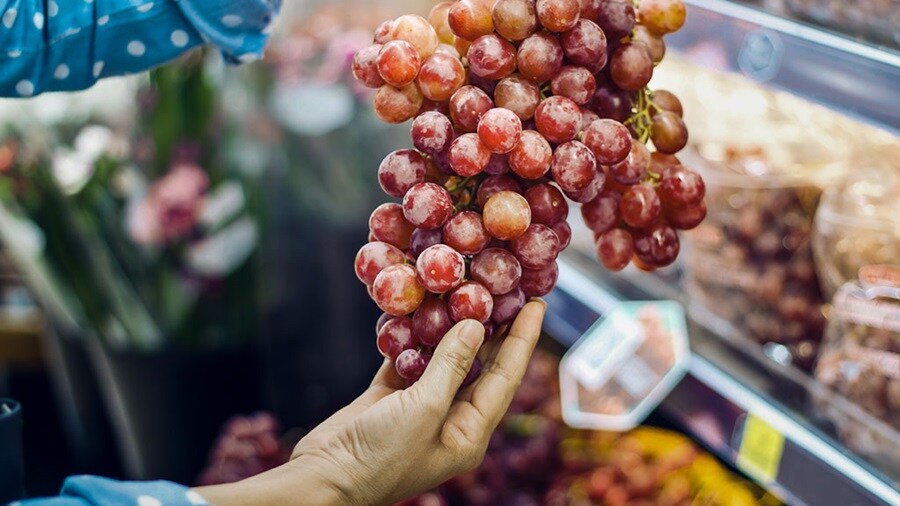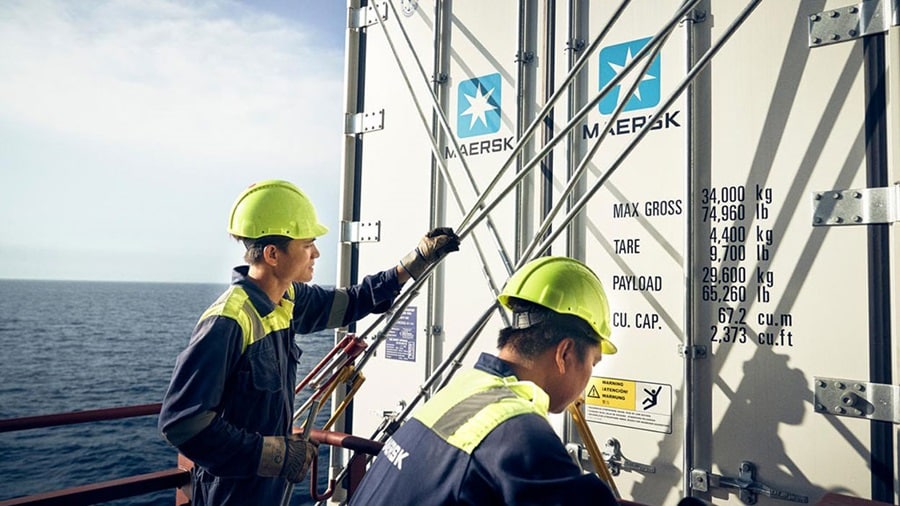In recent years, cold chain logistics has experienced a significant surge around the world, and it’s showing no signs of slowing down – with the market set to grow from 292.89 billion USD in 2022 to a projected 410.79 billion USD by 2028.
This expansion is fuelled by the rising demand for warehousing, particularly after the ecommerce boom in the wake of the Covid-19 pandemic. Amidst this growth, Europe stands out, facing warehouse capacity challenges that call for innovations and investments in the cold storage sector. In this article, we dive into the current state of cold storage facilities in Europe, highlighting key considerations and challenges, and continue to explore Rotterdam, a location offering opportunities for businesses to streamline their supply chains, enhance speed to market, and reduce costs.
The long-distance challenge

The cold chain logistics market in Europe is projected to reach 113.8 billion USD in 2025, up from 97.79 billion in 2023. However, European countries lag behind global leaders like the US, China, and India in refrigerated warehouse space, underscoring the need for further development. Plus, as industries requiring cold chain logistics - such as fresh food and vegetables, healthcare, and biopharma - continue to grow, the demand for efficient storage solutions becomes increasingly pressing.
Having access to cold storage closer to ports and final markets would provide businesses with the opportunity to add speed and simplicity to their supply chains – which in the business of fresh produce is crucial.
For example, exporters of grapes from South Africa into Europe will typically work with an import partner at destination, and this import partner buys grapes from multiple exporters to be able to fulfil the demand agreed with a retailer. Because grape deterioration starts immediately after picking, minimising transport and handling time becomes crucial for preserving freshness. If the exporter had access to a cold storage facility at destination, they could simplify this process and sell directly to a retailer with grapes exchanging fewer hands.
The growing need for refrigerated space ties into the myriad of challenges the cold chain industry is facing in Europe, with shippers grappling with issues like proper handling (63%), product packaging (31%), and adequate storage (31%). When the integrity and shelf life of products like fresh fruit and veg, perishables, frozen goods, and pharmaceutical products depends on precise temperature levels, every additional step in the handling process comes with the potential to disbalance the temperature level, resulting in product and profit loss.
When the majority of existing cold storage facilities are located roughly 45 kilometres from ports, it adds not only the extra cost for shunting, empty return, and demurrage, but also extra handling steps. And with every extra step and hand-off, the potential for setbacks in temperature control decreases significantly.
Rotterdam's role in reshaping cold chain logistics
In addressing the challenges faced by the cold chain logistics industry in Europe, Rotterdam, home to Europe’s largest container port, shows a bright future ahead. The Port of Rotterdam, as a major logistics hub in Northern Europe, boasts an extensive intermodal network encompassing road, rail, and barge connections with the rest of the continent. This interconnectivity positions Rotterdam as a gateway to the rest of Europe – and because the final destination of cargo often goes beyond the hinterland and stretches further into Germany, Belgium, and France, it enables businesses to reach a wider market quickly and efficiently.

As such, Rotterdam was the logical choice for an investment that will address the existing challenges and offer simpler and more integrated supply chain solutions. Recently, Maersk announced the construction of a new cold store facility in the Port of Rotterdam, located next to the Maasvlakte II terminal. The new facility goes beyond mere cold storage, offering integrated solutions including customs services, contamination checks, quality inspection, and repackaging – all running on renewable energy sources.
We recognise the challenges importers face when dealing with products originating from distant locations. The new facility in Rotterdam aims to provide an integrated value proposition, empowering businesses with greater control over their products in the European market. By being close to the port, as well as retailers, the facility can change the way fruit and vegetable products are distributed and sold in Europe. The uniqueness of this facility and location is that it will enable our customers to take part in the European market with as little intermediate steps as possible.
Rotterdam's strategic positioning, coupled with Maersk's innovative cold storage solutions, provides a compelling opportunity for businesses seeking to optimise their supply chains. This integration not only addresses the current challenges faced by the cold chain logistics industry in Europe, but also propels it towards sustainable growth and efficiency.
Explore how these integrated cold chain solutions and our European cold store network can serve your unique needs here.
Maersk cold chain experts will be on location at Fruit Logistica from 7-9 February in Berlin. If you are a fruit importer / exporter and wish to discuss your space at the Maasvlakte II (Rotterdam), book a meeting with us here.无论您需要什么,我们都可以随时为您提供帮助
I agree to receive logistics related news and marketing updates by email, phone, messaging services (e.g. WhatsApp) and other digital platforms, including but not limited to social media (e.g., LinkedIn) from A. P. Moller-Maersk and its affiliated companies (see latest company overview). I understand that I can opt out of such Maersk communications at any time by clicking the unsubscribe link. To see how we use your personal data, please read our Privacy Notification.
By completing this form, you confirm that you agree to the use of your personal data by Maersk as described in our Privacy Notification.

